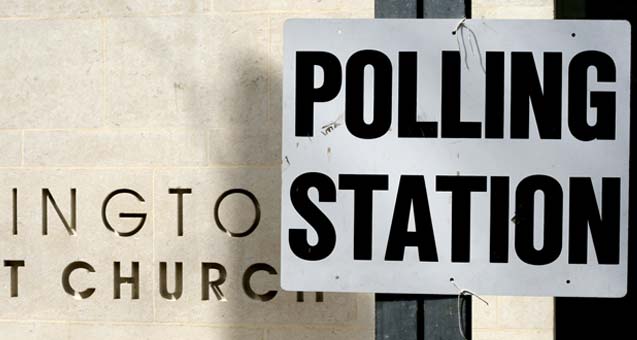
Last year, the Supreme Court decimated one of the civil rights movement’s crowning achievements. Now, it’s time for Congress to pick up the pieces, put it back together and make our laws strong enough to protect our most important right: our vote.
Many folks who lived and fought through the civil rights movement weren’t just frustrated by the Supreme Court’s decision in Shelby County v. Holder, which undermined a core provision of the Voting Rights Act of 1965.
They were heartbroken.
The ruling gutted the Voting Rights Act provision that required the Justice Department to pre-approve changes to voting laws in areas with a history of discrimination at the ballot box. For nearly half a century, the Justice Department used that authority to block some of the country’s most egregious attacks on voting rights.
The Supreme Court’s decision didn’t eliminate the Justice Department’s preclearance authority itself, but it removed the formula that determined where it could use that authority, rendering the entire preclearance provision useless.
In doing so, the Court opened the gates for a flood of new laws that restrict the right to vote through a range of methods. Since Shelby, states and municipalities have pushed through legislation making it harder for millions of people to cast ballots. States have cut back on early voting, made it harder to register, and begun requiring specific forms of identification — documents that many eligible voters don’t have and can’t easily get.
From shortening the hours the polls are open to moving polling locations, these restrictions fall heaviest on people of color, the elderly, students, and the poor. Now it’s up to Congress to solve the problem.
The Supreme Court’s ruling left room for Congress to repair the damage and put the law’s protections back into effect. And a bipartisan group of representatives have been working to do just that with the Voting Rights Amendment Act (VRAA). It is a flexible, modern, nationwide solution to combating voting discrimination. And it would provide new tools to stop voter suppression and ensure that any proposed election changes are clear and fair.
Unfortunately, after a bipartisan process in which members of both parties had a hand in drafting the new legislation, House Republican leaders and the chair of the House Judiciary Committee have decided to block the fix and refuse even to hold hearings on the legislation.
That’s very bad news for voting rights and very bad news for our democracy.
Voting rights shouldn’t be a partisan issue, and representatives from both parties should be applauded for doing the hard work of repairing one of our nation’s most important laws. Now it’s up to ordinary people across the political spectrum to take a lesson from the civil rights movement and call out the lawmakers standing in the way of an important bill.
With grassroots pressure, there’s no reason the Voting Rights Amendment Act can’t become law this year, restoring and strengthening our civil rights protections.
Join us in defending the truth before it’s too late
The future of independent journalism is uncertain, and the consequences of losing it are too grave to ignore. To ensure Truthout remains safe, strong, and free, we need to raise $43,000 in the next 6 days. Every dollar raised goes directly toward the costs of producing news you can trust.
Please give what you can — because by supporting us with a tax-deductible donation, you’re not just preserving a source of news, you’re helping to safeguard what’s left of our democracy.